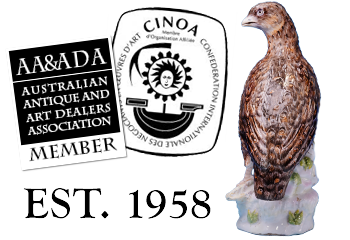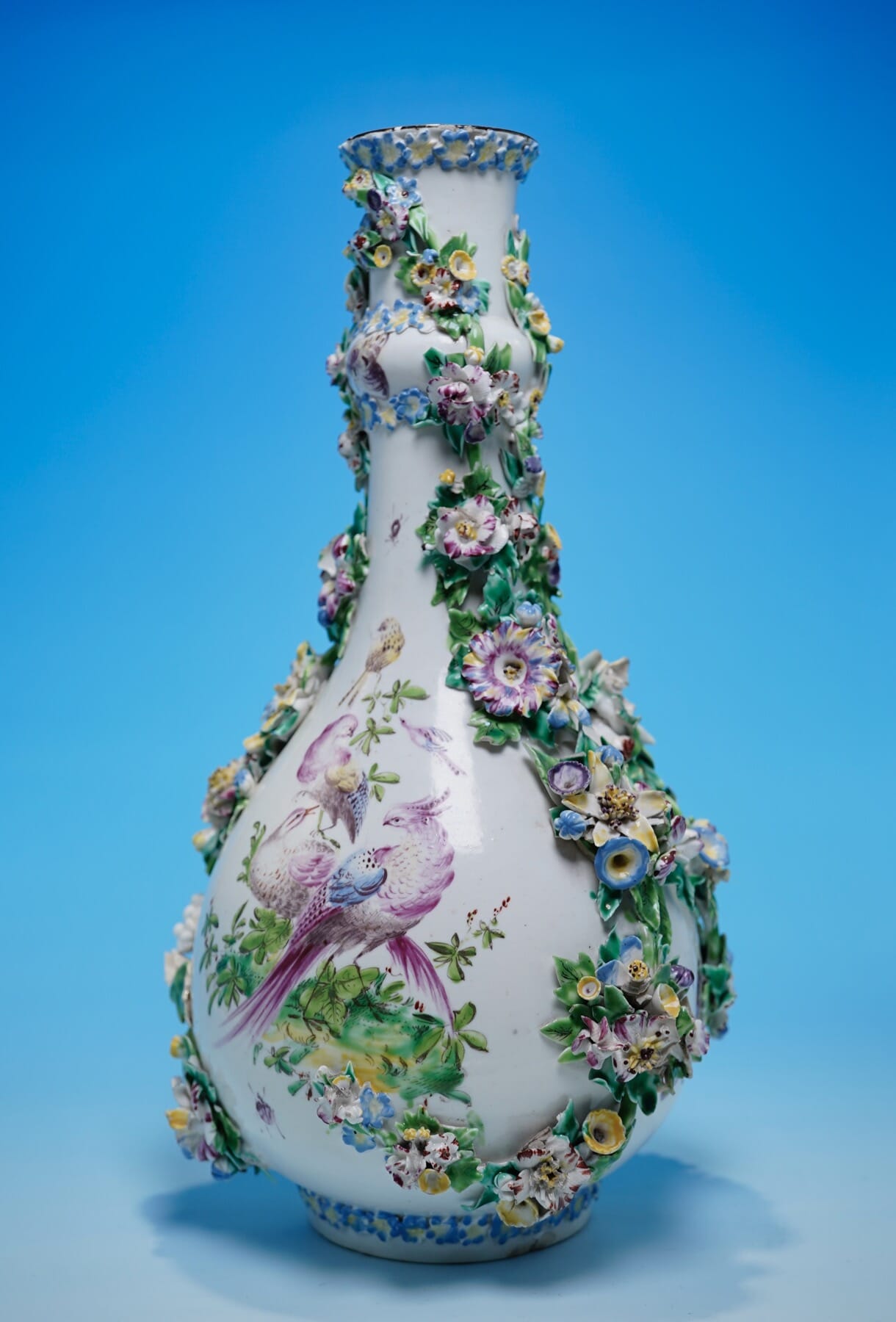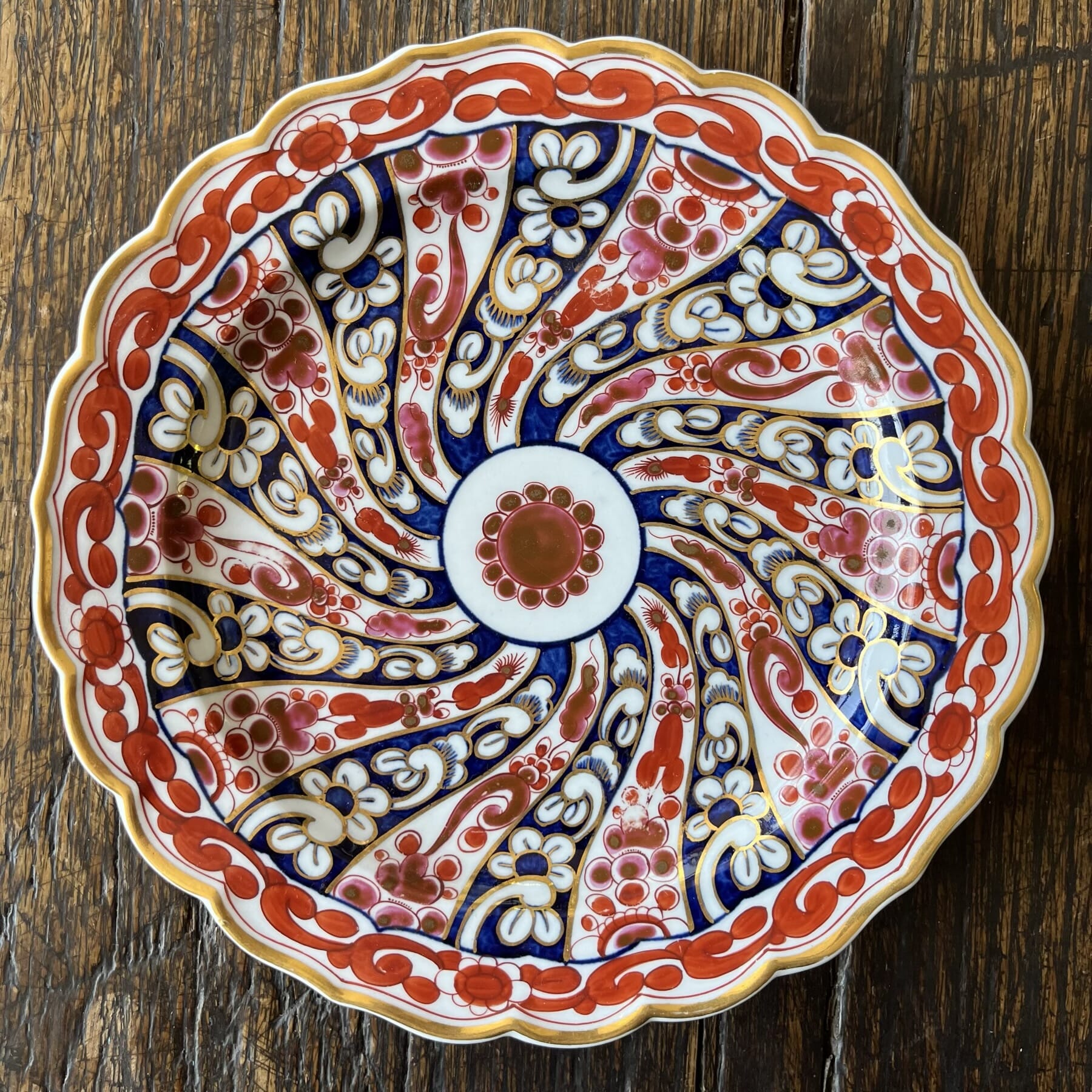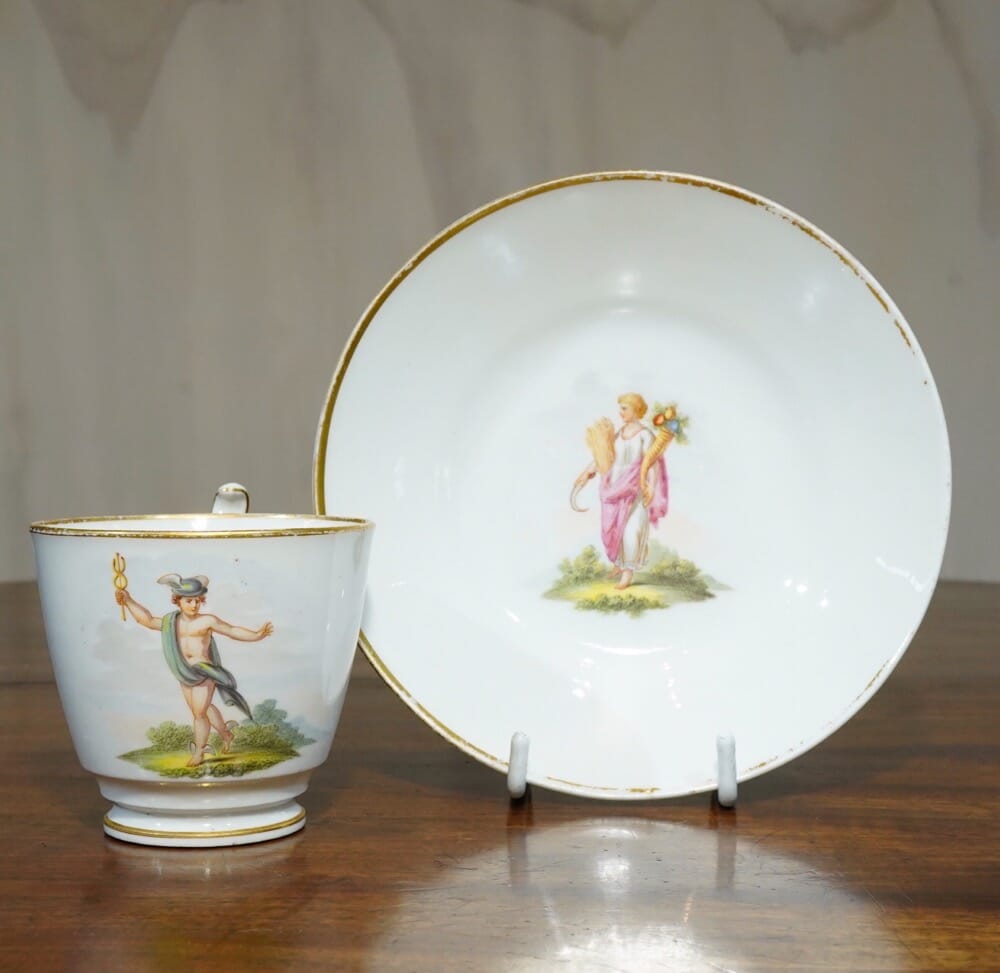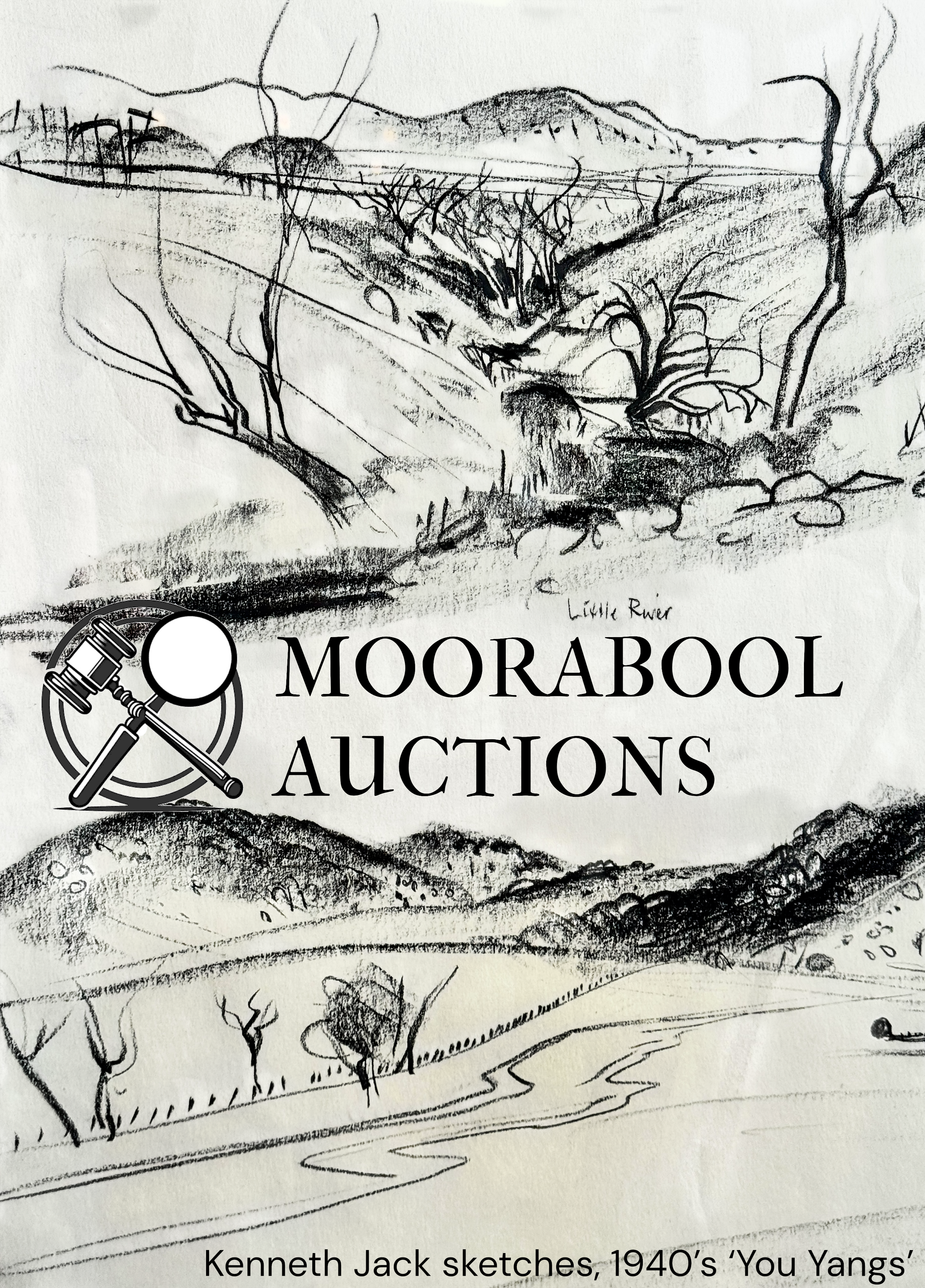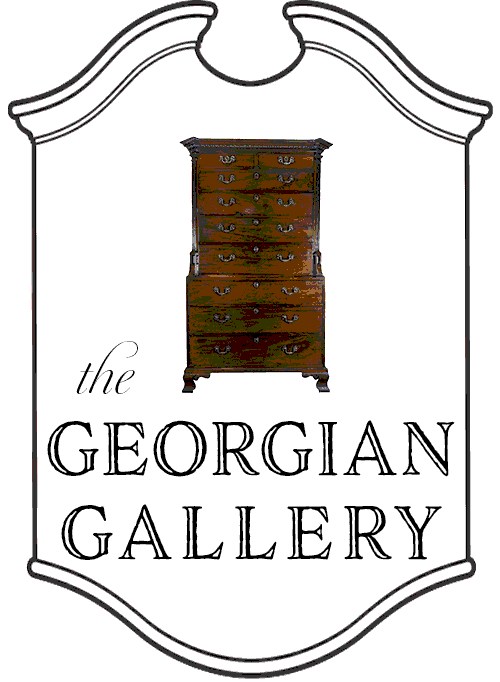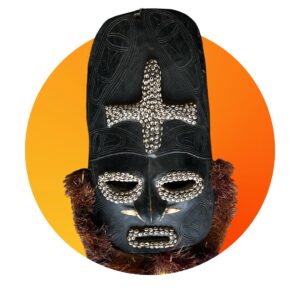Japanese porcelain censor, Kylin, Hirado ware, Edo period, 18th century
Sold
Stunning Japanese porcelain censor, in the form of a Kylin, with the body of a deer modeled seated with one hoof raised, the removable dragon head with multiple openings for smoke including nostrils, open mouth full of teeth and tongue, ears, and a series of holes beneath the neck crest, the whole with incised * – type markings defining fur with spots, the scrolling beard at neck and tail with finely combed linework, beneath a pale celadon glaze.
Hirado kilns,
Edo period
18th century
Condition: small losses to head including horn. Body is good.
ref. Soame Jenyns ‘Japanese Porcelains’ 1965 pl. 111A for an example, Hirado ware from Mikawachi, 1751-1843.
A Kylin (Kirin, or Qilin) was a mythical beast, having the cloven-hoof of a Deer, a scaled body of a Dragon, and a Dragon’s head with single horn. The overall impression of this Japanese example is a dog or feline, sitting on its haunches with short bushy tail erect. Their body is often shown with flames and smoke surrounding it, seen in this example as a series of raised scrolling lines. They were noted for appearing at the birth & death of notables; the birth of Confucius is said to have been preceded by a Kylin’s appearance. It became known throughout Asia as a symbol of good fortune, peace, and prosperity.
This remarkable Japanese example builds on this mythology, being adapted for a censor. The body would have been filled with sand, into which incense sticks could be placed; the smoke then made its way out dramatically through the nostrils, the open mouth, the ears, and the triangular opening beneath each spine on its neck. A truly auspicious sight!
| Condition | |
|---|---|
| Size | |
| References |
